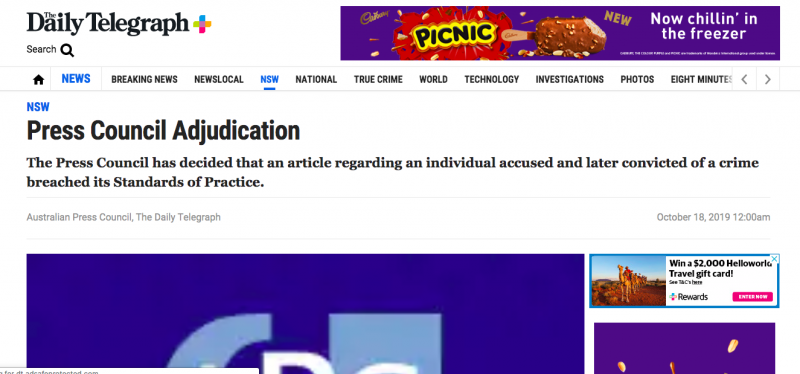The Daily Telegraph breached Press Council standards for transphobic article on axe attacker Evie Amati
The Press Council has ruled that The Daily Telegraph breached its Standards of Practice with an article about Evie Amati, who is spending at least eight years in jail after attacking three strangers with an axe in a Sydney convenience store in 2017.
The article, published on 11 January 2018 and headlined “Allegedly Axey Evie”, received complaints from people concerned about the prominence the article gave to Amati’s transgender status and distressing and prejudicial references including: “having been chopped herself”, “a “tranny” and a “previous he”. The story also made references to her former name, “Karl”.



The reporter/writer was the Daily Telegraph’s Tim Blair, as noted here: https://www.sbs.com.au/topics/sexuality/agenda/article/2017/01/25/comment-trans-people-are-not-punchline-joke-media-must-do-better-gender-identity
Why the reporting gymnastics to avoid mentioning his name?
Hi Luke,
Thank you for your comment. The original article has been taken down, and The Press Council chose not to name the journalist in the ruling. As we were unable to 100% confirm the author of the original piece, we didn’t feel comfortable naming the journalist. We are aware their name has been listed elsewhere, including in the piece you linked to, but without being able to see it for ourselves on the original story we’re unable to verify the information, and therefore did not include it.
Thanks,
Hannah Blackiston – Mumbrella
“NCAT ruled that an ordinary reader would have enough intelligence and taste to not be incited to have severe contempt or ridicule for Amati or transgender people.”
Authorities still not taking responsibility for the fact that media has been demonstrated to radicalise “susceptible” members of the public to anti-social behaviour and violence. We always bang on about how other countries (no need to mention which) don’t take a responsible approach to guns. Perhaps it’s the media they should be looking at.